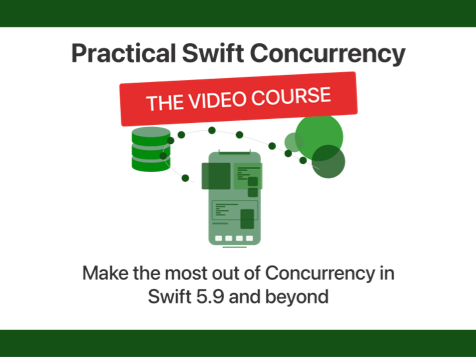@preconcurrency usage in swift explained
Published on: May 28, 2024When you enable strict concurrency checks for your existing projects, it’s likely that Xcode will present loads of warnings and/or errors when you compile your project for the first time. In this post, I’d like to take a look at a specific kind of error that relates to code that you didn’t write. The @preconcurrency […]
Read post

